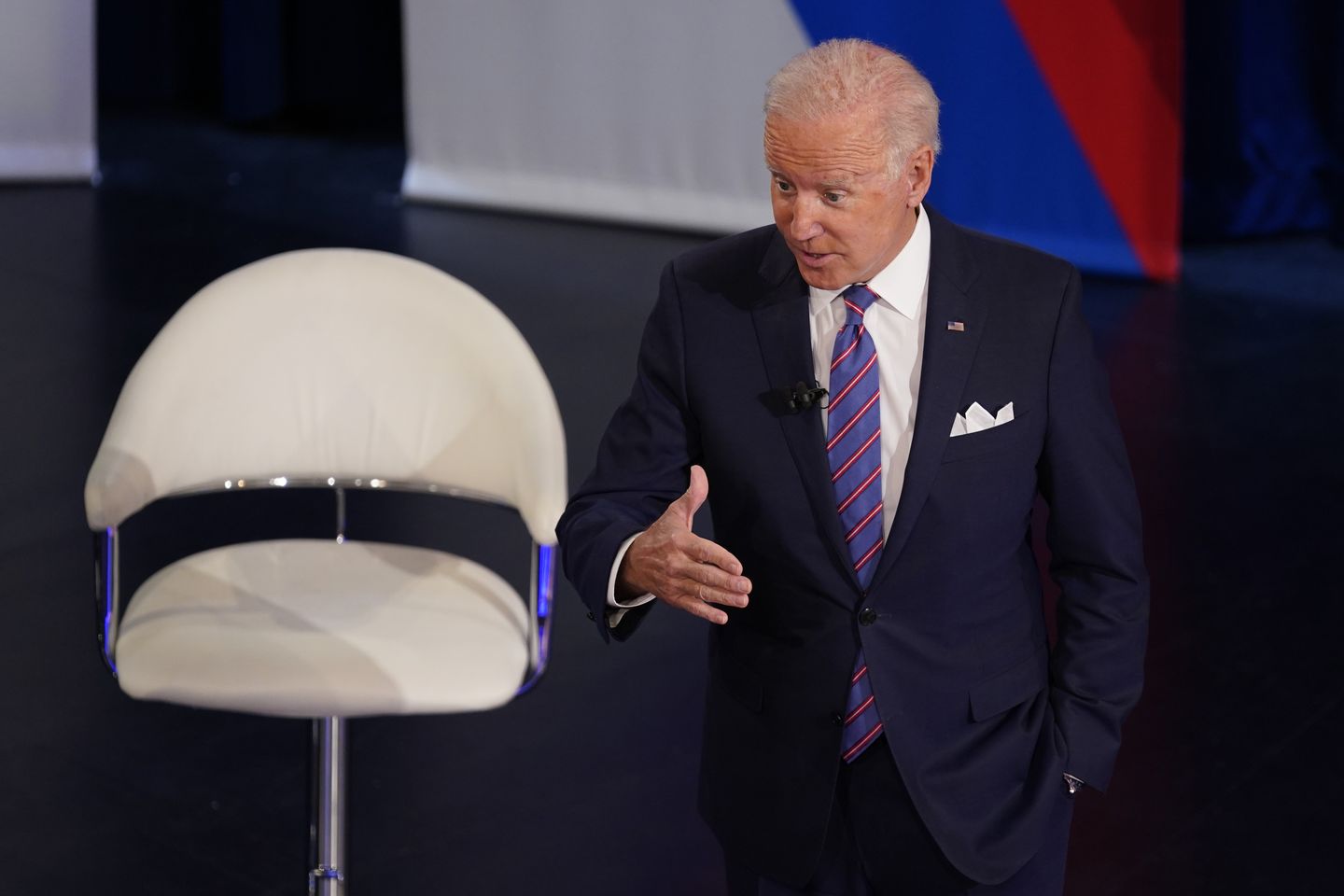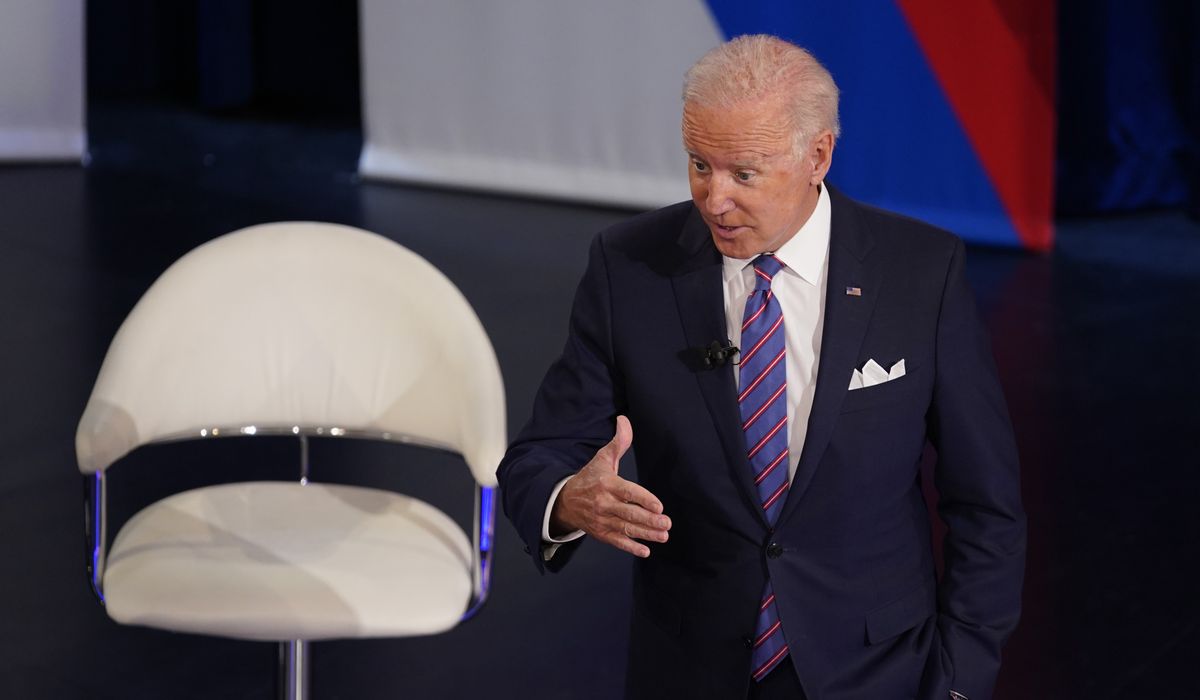

President Biden pledged during a CNN’s town-hall meeting Thursday evening to come to Taiwan’s defense if it was attacked by China, a major break from official U.S. policy of ambiguity.
“Yes, we have a commitment,” Mr. Biden said in response to a question about whether the U.S. would back Taiwan in such a case.
Mr. Biden made that comment in response to a request for clarification from host Anderson Cooper.
He had moments earlier answered “yes and yes” when an audience member asked a two-part question, one about countering China’s missile buildup and the other about defending Taiwan if attacked by China, which views Taiwan as a renegade province.
The latter would be a major break from decades of U.S. policy and even Mr. Biden’s own words this month.
Mr. Biden’s statement is a departure from the U.S. policy of “strategic ambiguity” and even Mr. Biden’s own words earlier this month.
Under the “strategic ambiguity” policy, the U.S. merely assesses Taiwan’s defense needs from threats posed by China or another nation.
The U.S. also has never explicitly committed itself to support Taiwan militarily in a war, as it does the other members of NATO, though it does support its military with weapons sales.
The White House reiterated the policy in August after Mr. Biden told ABC News that the U.S. would respond to a potential Chinese invasion of Taiwan.
But in October, Mr. Biden said he has spoken to Chinese President Xi Jinping about Taiwan and said they agreed to abide by the “Taiwan agreement.”
“We agree … we’ll abide by the Taiwan agreement,” he said. “We made it clear that I don’t think he should be doing anything other than abiding by the agreement.”
The U.S. does not formally recognize Taiwan at all diplomatically, though it has unofficial ties. The U.S. position is that there is one China and Taiwan is a part of it, and that the People’s Republic in Beijing is the legitimate government of China.
America also never has had military forces permanently deployed on the island, even during the decades when it recognized the Republic of China (Taiwan’s formal name) as the sole legitimate government of all of China.
Despite his vow to support Taiwan, Mr. Biden downplayed the possibility of war.
“China, Russia and the rest of the world knows that we have the most powerful military in the history of the world, so don’t worry that they are going to be more powerful,” Mr. Biden said during a CNN town hall event. “But you do have to worry about whether they are going to engage in activities that are going to put them in a position where they may make a serious mistake.”
Mr. Biden said he’s spoken to Mr. Xi more than any other world leader, but added that he doesn’t want a new cold war.
“I don’t want a cold war with China, I just want to make China understand that we are not going to step back, we are not going to change any of our views,” he continued.
China in recent weeks has taken an aggressive posture towards Taiwan while claiming sovereignty over the island nation. Beijing over the past month has sent dozens of warplanes over Taiwan’s air defense zone as tensions continue to escalate.
Mr. Xi has upped his calls for Taiwan to be brought into China, saying it would be “a peaceful reunification” while also refusing to rule out force.
China views Taiwan as part of its own territory even though the countries split in 1949. Beijing has also opposed Taiwan becoming involved in international organizations such as the United Nations and the World Health Organization.
